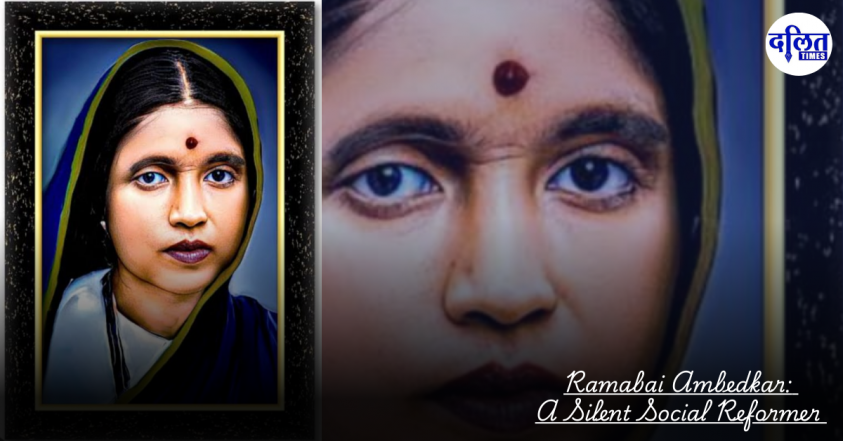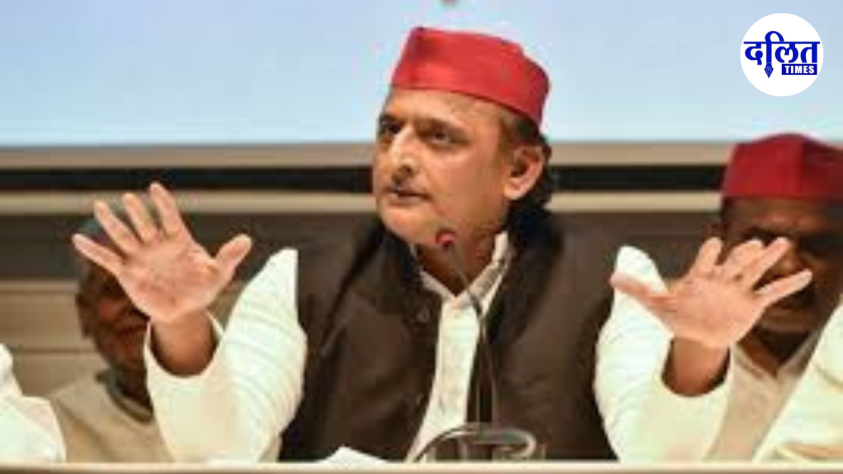The actions underscored the belief that one does not need academic credentials to grasp fundamental principles of justice and humanity…
The pivotal role of Ramabai Ambedkar in India’s social reform movement remains underappreciated. Her subtle yet significant contributions were essential in shaping Dr. Ambedkar’s mission to challenge caste-based oppression and social injustice. Despite enduring personal hardships and societal discrimination, Ramabai’s resilience and unwavering support became a cornerstone of Dr.B.R Ambedkar’s success and reformist endeavors.
A Champion of Resilience and Support
Born in a poor dalit family in the village of Vanand, near Dapoli in Ratnagiri district, Ramabai’s early life was marked by hardship. Her parents, Bhiku Dhotre (Valangkar) and Rukmini, worked tirelessly to sustain their family. Bhiku earned a modest living by transporting baskets of fish to local markets. Tragically, Ramabai lost her mother at a very young age, followed shortly by the death of her father. She and her siblings were then taken in by their uncles and relocated to the bustling Byculla market area in Bombay.
Despite these adversities, Ramabai demonstrated a remarkable inner strength and determination. Her marriage to Dr. B.R. Ambedkar in her 9th age marked the beginning of a partnership the child marriage was normal practice at that time. The bond with Dr.B.R Ambedkar shape the future of social reform in India. While Dr. Ambedkar pursued higher education and fought for the rights of the oppressed, Ramabai endured long periods of separation, living in extreme hardship in colonial India. Her sacrifices at home were a testament to her resilience and deep understanding of the importance of education and social change.
Also Read : Kshama Sawant- American member of the council- ground-breaking legislation- ban caste-based discrimination
A Voice for Social Justice
Living in an era of rampant caste discrimination, Ramabai’s life choices were quietly revolutionary. Though she did not receive formal education, she possessed a profound awareness of social injustices and the struggles faced by marginalized communities. Her empathy and understanding made her a guiding force for many Dalit women, inspiring them to rise above societal constraints and seek a life of dignity.
Ramabai’s advocacy for dignity and equality was not vocal in public forums but demonstrated through her life choices and steadfast support of Dr. Ambedkar’s mission. Her actions underscored the belief that one does not need academic credentials to grasp fundamental principles of justice and humanity.

An Inspiration Through Sacrifice
While Dr. Ambedkar led public battles for social reform, Ramabai bore the burden of personal sacrifices with grace. Despite facing poverty and isolation, she never wavered in her support for her husband’s mission. Her faith in Dr. Ambedkar’s vision was evident when she resisted advice from others to dissuade him from pursuing education abroad, recognizing its transformative potential for their community.
Her sacrifices extended beyond personal hardships. Ramabai’s long-standing wish to embark on a pilgrimage to Pandharpur was denied due to their Dalit identity. This painful experience deeply moved Dr. Ambedkar, prompting him to promise Ramabai that he would create a “new Pandharpur” for her. This vow became one of the defining factor in his decision to renounce Hinduism and embrace Buddhism, a monumental step in India’s social reform movement.
Also Read : Caste-Based Social Boycott Alleged in Madhya Pradesh Village Over Prasad Consumption
A Legacy of Humility and Strength
On May 27, 1935, Ramabai passed away after a prolonged illness. Her life, though marked by immense hardship, stands as a beacon of humility, perseverance, and strength.
Ramabai Ambedkar: A Silent Social Reformer
“The actions underscored the belief that one does not need academic credentials to grasp fundamental principles of justice and humanity.”
The pivotal role of Ramabai Ambedkar in India’s social reform movement remains underappreciated. Her subtle yet significant contributions were essential in shaping Dr. Ambedkar’s mission to challenge caste-based oppression and social injustice. Despite enduring personal hardships and societal discrimination, Ramabai’s resilience and unwavering support became a cornerstone of Dr.B.R Ambedkar’s success and reformist endeavors.
A Champion of Resilience and Support
Born in a poor dalit family in the village of Vanand, near Dapoli in Ratnagiri district, Ramabai’s early life was marked by hardship. Her parents, Bhiku Dhotre (Valangkar) and Rukmini, worked tirelessly to sustain their family. Bhiku earned a modest living by transporting baskets of fish to local markets. Tragically, Ramabai lost her mother at a very young age, followed shortly by the death of her father. She and her siblings were then taken in by their uncles and relocated to the bustling Byculla market area in Bombay.
Despite these adversities, Ramabai demonstrated a remarkable inner strength and determination. Her marriage to Dr. B.R. Ambedkar in her 9th age marked the beginning of a partnership the child marriage was normal practice at that time. The bond with Dr.B.R Ambedkar shape the future of social reform in India. While Dr. Ambedkar pursued higher education and fought for the rights of the oppressed, Ramabai endured long periods of separation, living in extreme hardship in colonial India. Her sacrifices at home were a testament to her resilience and deep understanding of the importance of education and social change.
A Voice for Social Justice
Living in an era of rampant caste discrimination, Ramabai’s life choices were quietly revolutionary. Though she did not receive formal education, she possessed a profound awareness of social injustices and the struggles faced by marginalized communities. Her empathy and understanding made her a guiding force for many Dalit women, inspiring them to rise above societal constraints and seek a life of dignity.
Ramabai’s advocacy for dignity and equality was not vocal in public forums but demonstrated through her life choices and steadfast support of Dr. Ambedkar’s mission. Her actions underscored the belief that one does not need academic credentials to grasp fundamental principles of justice and humanity.
An Inspiration Through Sacrifice
While Dr. Ambedkar led public battles for social reform, Ramabai bore the burden of personal sacrifices with grace. Despite facing poverty and isolation, she never wavered in her support for her husband’s mission. Her faith in Dr. Ambedkar’s vision was evident when she resisted advice from others to dissuade him from pursuing education abroad, recognizing its transformative potential for their community.
Her sacrifices extended beyond personal hardships. Ramabai’s long-standing wish to embark on a pilgrimage to Pandharpur was denied due to their Dalit identity. This painful experience deeply moved Dr. Ambedkar, prompting him to promise Ramabai that he would create a “new Pandharpur” for her. This vow became one of the defining factor in his decision to renounce Hinduism and embrace Buddhism, a monumental step in India’s social reform movement.
A Legacy of Humility and Strength
On May 27, 1935, Ramabai passed away after a prolonged illness. Her life, though marked by immense hardship, stands as a beacon of humility, perseverance, and strength.



